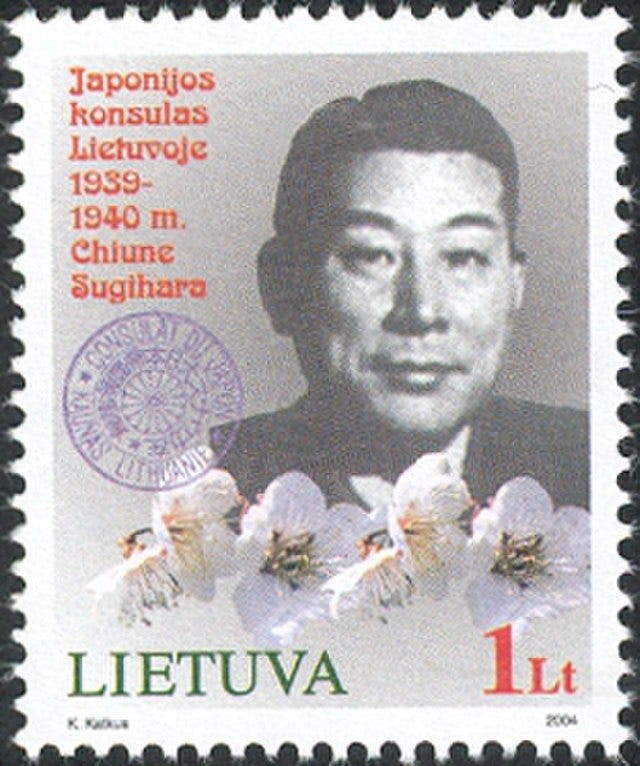Hi all,
This week’s song is Sugihara, a song by David Rovics. David Rovics is a proliferous (増殖性な) songwriter, performer, and activist. In my opinion, he is the modern-day Phil Ochs. If Phil Ochs were alive today, I’m sure they would have a lot to talk about.
If you’d like to hear the song and read the lyrics before you read the passage below, I’ve included a YouTube video below the article. Please listen. It’s a beautiful song.
As with most everything, there are many ways to interpret things. If you have any questions or comments, just tap the little comments icon at the end.
For Japanese students, vocabulary words in bold are provided in Japanese below.
The Song
(423 words)
The song is a story about two individuals and the humanity and compassion that one showed to the other.
It begins by introducing Chiune (Sempo) Sugihara, a member of the Japanese diplomatic corps in Lithuania during World War II. (The Japanese government sent Sugihara to work in Lithuania, hoping that he would be able to send back information on German and Soviet military movements in the Baltic region.)
Then we hear about the main character’s ancestors, his grandfather, in particular. During the Nazi occupation, his grandfather fled with his family to Lithuania. Later, as the Nazi (Panzer) tanks were approaching, they had to leave Lithuania, but all the embassies said, “No”, and they had nowhere to go.
Their last chance for escape was to try the Japanese consulate. There, with thousand of other Polish Jews, his grandfather asked for visas so they could leave Lithuania and escape the Nazis.
Sugihara asked the Tokyo authorities if they could issues the visas, “Can I grant them this reprieve?”, but the Tokyo officials refused. Sugihara and his wife, Yukiko, chose to ignore these orders and began writing out the visas that would allow the refugees transit through the Soviet Union.
Then, he received new orders from Tokyo, “It’s time to turn it in / You're closing down your consulate and moving to Berlin.” As Sugihara and his wife were leaving, up to the last moment, they wrote out thousands of visas for these refugees, They knew they did the right thing, of this they had no doubt / They threw visas through the window as their train pulled out.
The main character explains that his grandfather and his family managed to escape by crossing the Soviet Union, although they had to pay five times the normal price because people took advantage of their situation to make money. With the visas, they went on to Kobe, Japan, and then to occupied Shanghai, China, where they waited out the war. At the same time, friends and family back in Poland were being killed.
Sugihara did not seek praise from anyone
When he died, the paper said his neighbors knew not what he'd done
But there are forty thousand people living lives today
Without Sempo Sugihara I would not be here now to say
Although I never met him, when all is said and done
I am Sugihara's son
The main character is alive today because of the compassion that Chiune (Sempo) Sugihara showed toward his grandfather and thousands of others.
Sugihara issued over 2,000 visas during his time in Lithuania.
VOCABULARY
humanity 人類
compassion 惻隠の情
diplomatic corps 外務省
ancestor 祖先
flee (past tense: fled) 迯げる
Panzers (German tanks)
embassy 大使館
consulate 領事館
reprieve 猶予
transit 通過
turn it in 畳んで出て行く
occupation/occupied 被占領
Grammar point:
Notice the structure in: his neighbors knew not what he’d done. We usually see this written (or spoken) as
His neighbors didn’t know what he had done
but switching the word order here puts a bit more emphasis on the fact that the neighbors didn’t know. It is also a method of creating a rhyme for the word anyone.
You can read more about Chiune Sempo Sugihara at the United States Holocaust Memorial Museum’s website:
https://encyclopedia.ushmm.org/content/en/article/chiune-sempo-sugihara
David Rovics is an author at Counterpunch.org and can be found on Substack at https://davidrovics.substack.com/. He’s also on Patreon and many other social media sites. For further information, see his website at https://www.davidrovics.com.







I love this! The format of the blog and the explanation of the story - especially the context of the Japanese language and vocabulary!
Impressive!!!
I think this is one of my favorite songs that you've posted so far, partly just because I love that man's voice. The heartbreak of every refugee's story is multiplied by the number of people who have turned them away. It was not enough that those people had to flee the Nazis. They were told by dozens of people, dozens of countries really, that they were not worth the trouble of being saved. It reminds me of the Christmas story, when Mary is told to give birth in a stable. So often, we say it is unfortunate but we cannot help these people, it is too impractical, it will hurt the economy, but really they are people who must be saved and we must save them. It reminds me of immigrants at the border, so desperate to leave their homes that they sneak in and give themselves up to the whims of politicians. I suppose I ought to focus on Sugihara writing all those visas, but all I can think of is that he should not have been the only one and imagine all the people trapped in Poland after he left. Thank you for sharing this!